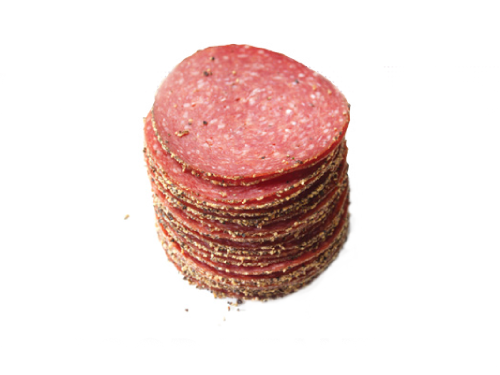For good health, pass up processed meats
If you favor sizzling bacon and salty slices of ham, you might want to reserve these menu choices for special occasions, thanks to a growing body of science that says “No” to consuming processed meats. Researchers have linked higher consumption of these meats – bacon, sausage, hot dogs, and processed deli meats like ham and salami – with a number of poor health outcomes, including heart disease, Type 2 diabetes, cancer and premature death.
Heart disease: A Harvard meta-analysis that included data on more than 1.2 million people found that processed meats were linked to a 42 percent higher risk of coronary heart disease (Circulation, 2010).
Type 2 diabetes: Data from Harvards’ Health Professionals Followup Study, which followed more than 442,000 participants, revealed that eating a daily 50-gram (1.75 ounces) serving (about one hot dog or sausage) was linked with a 51 percent increased risk of developing type 2 diabetes.
Cancer: While processed meat intake has been associated with a number of cancers, the most conclusive link is with colorectal cancer. In the National Institutes of HealthAARP Diet and Health Study, which included more than 500,000 adults, a significant increased risk of colorectal and lung cancer was observed with higher intake of processed meat. The American Institute for Cancer Research warns against eating any amount of processed meat in order to reduce cancer risk.
Premature death: A study published in March 2012 in the Archives of Internal Medicine evaluated data from more than 120,000 men and women over 28 years. The researchers found that a daily serving of processed meat increased the risk of death by 20 percent.
Why the risk? There are several plausible reasons why processed meats may raise your risk for disease. These meats are often very high in saturated fats, which are known to raise “bad” LDL cholesterol levels, heart disease risk, and promote inflammation, a root of chronic disease. An ounce of pan-fried bacon (about one strip) has about 4 grams of saturated fat, 20 percent of your budget for the whole day. In addition, processed meats are typically very high in sodium; an ounce of pepperoni contains over 450 milligrams, about 20 percent of the daily allotment for healthy individuals. Keeping your sodium intake down can help protect you from high blood pressure and stroke. And more: Processed meats are prepared with carcinogen-forming compounds, such as nitrites. Your healthiest bet is to keep these processed meats to a minimum or avoid them entirely. Focus on fresh, minimally processed animal foods such as chicken, turkey and fish, as well as more plant-based proteins, such as soyfoods, beans, lentils, peas, nuts and seeds.
For more information, visit www.environmentalnutrition.com.
Environmental nutrition is the award-winning independent newsletter written by nutrition experts dedicated to providing readers up-to-date, accurate information about health and nutrition in clear, concise English.









